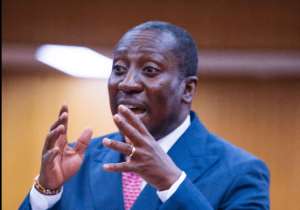 Minority Leader Alexander Kwamina Afenyo-Markin
Minority Leader Alexander Kwamina Afenyo-MarkinMinority Leader Alexander Kwamina Afenyo-Markin has issued a stark warning over what he calls an “attitude deficit” among Ghanaians, stressing that this deep-rooted cultural issue threatens not only the nation’s economic future but also the integrity of its democratic system.
Delivering a forceful critique of the prevailing national mindset, Afenyo-Markin argued that Ghana’s progress will remain fragile unless citizens undergo a fundamental shift in their approach to responsibility, accountability, and civic duty.
“The challenge is not just policy or leadership—it’s an attitude deficit,” he declared. “There’s a general lack of accountability and responsibility among citizens, and that is stalling our progress.”
While acknowledging recent economic gains, the Effutu MP maintained that no amount of government policy or economic growth will be sustainable without a renewed national ethic—one that treats state support not as a lifeline to be exploited, but as an investment to be honoured and repaid.
He took aim at the long history of political interference that, he said, has sabotaged key national initiatives and allowed a culture of impunity to fester. He cited the widespread default on government-backed financial support schemes under every post-independence administration.
“In each of these cases, many people simply took the funds and walked away,” Afenyo-Markin said, referencing failed repayments under former President Rawlings’ Poverty Alleviation Fund, President Kufuor’s MASLOC initiative, President Mahama’s Chapter One, President Akufo-Addo’s NEIP (National Entrepreneurship and Innovation Programme).
He condemned what he sees as an entrenched political tendency to prioritise votes over discipline.
“The question is: why isn’t the government going after people who failed to pay for tractors and other support? The answer is politics. We care more about votes than about discipline,” he stressed.
Afenyo-Markin warned that if this cycle of unaccountable public conduct and weak enforcement continues, it could permanently cripple state-led development efforts and even endanger Ghana’s democratic institutions.
He is calling for a national reckoning—an open and inclusive dialogue that brings together political leaders, civil society, and the wider public to redefine the social contract.
“If we don’t change our approach and start demanding more from both our leaders and ourselves, our democracy could be at risk,” he cautioned.


